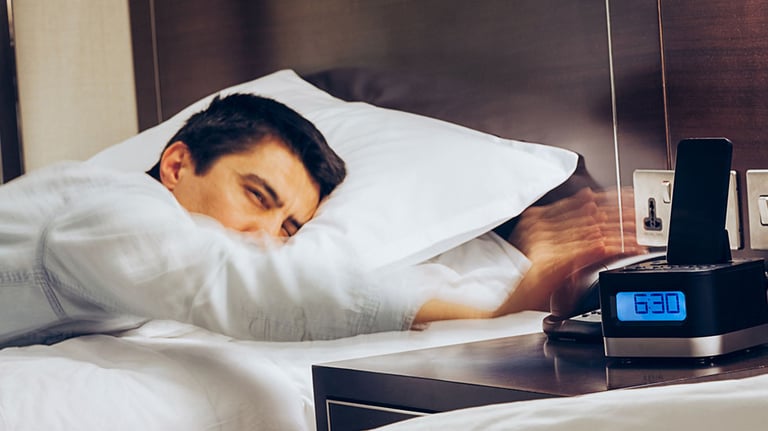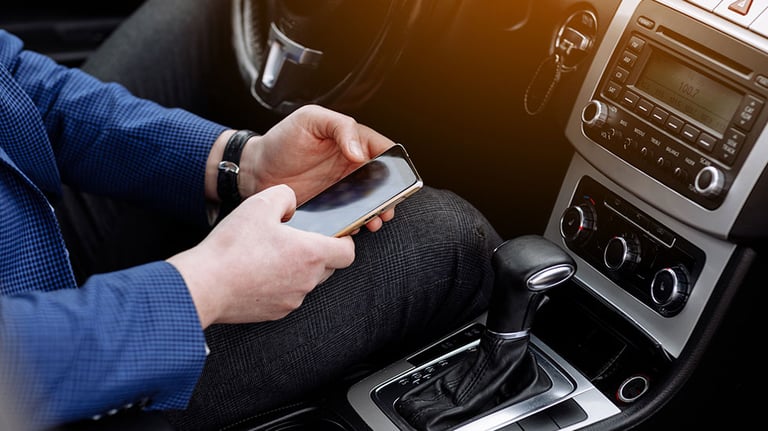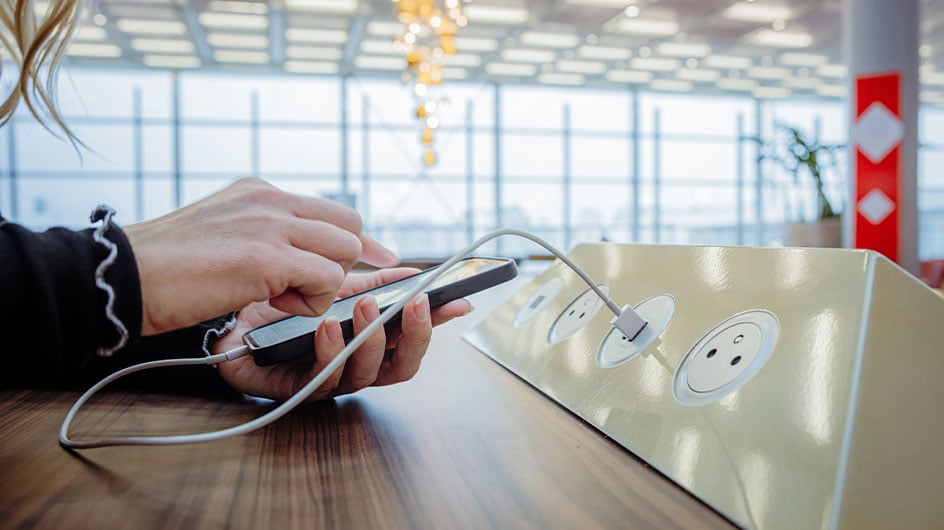
For most of us, our phones are our lifelines. We use them to keep in touch with friends and family, check email, browse the internet, scroll social media, listen to music, and more. And with all that activity, we are quick to charge our phones anywhere we can find an outlet.
What many people don’t know is that there are certain places that are dangerous to charge up, putting your data and your device at risk. Here are five places you should never charge your phone.
1. Airports, train stations, and bus stations
While public transportation stations such as airports, train stations, and bus stations have a variety of charging stations and outlets where you can plug in your phone, that doesn't mean you should use them. Cybercriminals can modify those USB connections to install malware on your phone or download your data without your knowledge.
Additionally, a criminal can even set up their own free charging station; when you plug in your phone to charge, your sensitive information also gets copied.
It’s much safer to bring your own charger and plug, or better yet, use your own portable power bank.

2. Hotels
Your private room at a hotel seems like a safe place to charge your phone, and the USB ports on most hotel alarm clocks are very convenient. Unfortunately, like public places, there is the potential threat of “juice jacking,” a type of cyberattack where hackers can access your data or install malware on your device. Avoid the USB port, and use your own cord and plug.

3. Rental cars
When a phone is plugged into the active outlet, the phone and the vehicle systems talk to each other. This connectivity can transfer your information from your phone to the car, and the car can then store the private information from your phone. Even if someone isn’t maliciously trying to get your information, it can be dangerous to leave your data for the next consumer who rents the vehicle. Instead, use an adapter with an electrical outlet or a portable charger.
4. Tourist attractions
Not only can someone hack your data or compromise your device from a public charging station, but they may also be able to remotely turn on your camera or microphone. Cybercriminals can also download photos, apps, information, and more in just a matter of minutes. Charge your phone before you leave home, or use your own portable charger.

5. Shops, libraries, and cafes
Libraries may seem like a safe space, but their public charging stations can be just as risky. USB hubs in shopping malls or cafes can send your contacts, emails, texts, voicemails, photos, videos, and more to a criminal. In some cases, USB hubs can copy passwords, banking data, personal contacts, and other personal data that could result in a cybersecurity nightmare. Public USB hubs may even transfer malware programs to your phone, rendering it useless.

